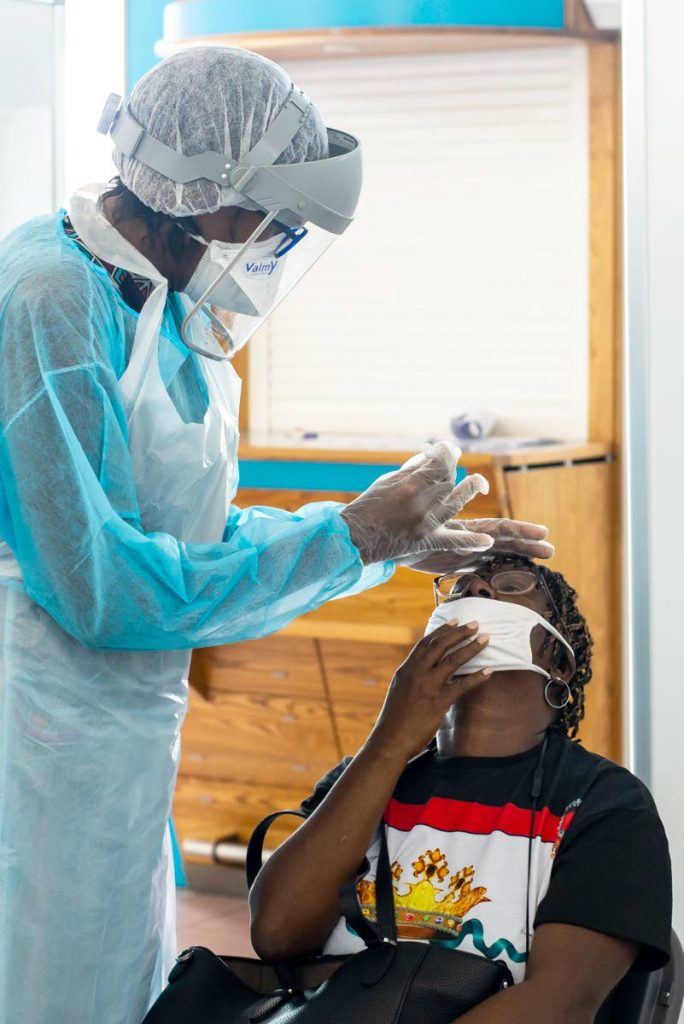Learning about long covid

DR MAXWELL ADEYEMI
Long covid is a term being used to describe illness in people who have either recovered from covid19 but have lasting effects of the infection or have had the usual symptoms for far longer than would be expected.
The concept of long covid is becoming widely reported in many countries, although no one knows exactly how many people have persistent symptoms of covid19. In July 2020, the Centers for Disease Control and Prevention (CDC) reported in its morbidity and mortality report that 35 per cent of adult patients had not returned to the “usual state of health”.
There is as yet little research on this issue. However, it is being actively discussed within the research community. Writing in the Journal of the American Medical Association (JAMA), a team of researchers from Italy reported that nearly nine in ten patients (87 per cent) discharged from a Rome hospital after recovering from covid19 were still experiencing at least one symptom 60 days after onset. They found that 13 per cent of the 143 people were completely free of any symptoms, while 32 per cent had one or two symptoms, and 55 per cent had three or more.
Although none of the patients had fever or any signs or symptoms of acute illness, many still reported fatigue (53 per cent), dyspnea (43 per cent), joint pain (27 per cent), and chest pain (22 per cent). Two-fifths of patients reported a worsened quality of life.
Most health sources suggest that people will recover within two weeks or so. But it’s becoming increasingly clear that this isn’t the case for everyone infected with coronavirus.
Evidence shows that many of those survivors are likely to have significant ongoing health problems, including breathing difficulties, tiredness, reduced muscle function, impaired ability to perform vital everyday tasks, and mental health problems such as post-traumatic stress disorder, anxiety, and depression.
Most people who have covid19 recover completely within a few weeks. But some people – even those who had mild cases of the disease – continue to experience symptoms after their initial recovery.
Older people and people with many serious medical conditions are the most likely to experience lingering covid19 symptoms. The most common signs and symptoms that linger over time include:
1) Fatigue – a prominent symptom of long covid19. In a JAMA study, 53 per cent of patients reported fatigue up to two months, it is a fairly severe and disabling symptom.
2) Shortness of breath is one of the most common continuing symptoms of long covid. Many covid19 patients end up with long-term lung damage, fibrosis and scarring, especially if they had Intensive Care Unit management. This has potential to develop long-term complications.

3) Headache, aches and pains: recovering patients experiencing long covid have reported headaches, muscle and body aches, joint pain, lower back pain, nerve pains. These pains can be extreme and difficult to manage in some patients.
4) Brain fog: covid19 survivors also reported difficulty concentrating, short attention spans, anxiety, sleep disruptions and other neurological symptoms.
Although covid19 is seen as a disease that primarily affects the lungs, it can damage many other organs as well. This organ damage may increase the risk of long-term health problems
WHY SYMPTOMS LINGER
There are suggestions that long covid may be due to: the immune system still raging even though the virus is gone; lingering inflammation affecting the different organs; covid19 exposing a previously latent condition.
In addition to the long covid symptoms, there are many organs that are affected negatively as a result of this infection. Organs that may be affected by covid19 include:
• Heart: imaging tests taken months after recovery from covid19 have shown lasting damage to the heart muscle, even in people who experienced only mild covid19 symptoms. Cardiologists now know that covid19 can cause myocardial injury resulting in myocarditis, or death of heat cells, which results in tachycardia. This may increase the risk of heart failure or other heart complications in the future.
• Lungs: the type of pneumonia often associated with covid19 can cause long-standing damage to the tiny air sacs (alveoli) in the lungs. The resulting scar tissue can lead to long-term breathing problems.
• Brain: even in young people, covid19 can cause strokes, seizures and Guillain-Barre syndrome – a condition that causes temporary paralysis.
• Covid19 may also increase the risk of developing Parkinson's disease and Alzheimer's disease.
Covid19 can also make blood cells more likely to clump and form clots. While large clots can cause heart attacks and strokes, much of the heart damage caused by covid19 is believed to stem from very small clots that block tiny blood vessels (capillaries) in the heart muscle.
Other organs affected by blood clots include the lungs, liver and kidneys. Covid19 can weaken blood vessels, which contributes to potentially long-lasting problems with the liver and kidneys.
Additionally, people who have severe symptoms of covid19 often have to be treated in a hospital's intensive care unit, with mechanical assistance such as ventilators to breathe. Simply surviving this experience can make a person more likely to later develop post-traumatic stress syndrome, depression and anxiety.
Covid19 is not just a regular “flu”, people who are generally healthy and active can experience a bad illness and a prolonged road to recovery. Those with mild symptoms can have long-term organ complications.
It's important to remember that most people who have covid19 recover quickly. But the potentially long-lasting problems from covid19 make it even more important to reduce the spread of the disease by following precautions such as wearing masks, avoiding crowds and keeping hands clean. Prevention is still the best option.
Contact Dr Maxwell on 363-1807 or 757-5411.


Comments
"Learning about long covid"